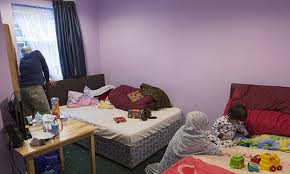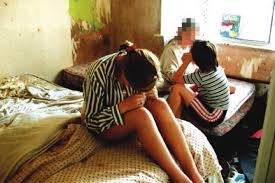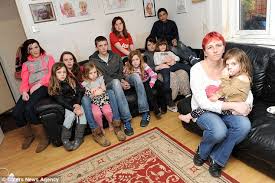This blog is written in response to a Linked In (Early Years Training Group) article by Leah Davies in which she questions how American schools can support children living in difficult conditions, citing homelessness as a key area. My immediate response was that schools in the UK don’t face this same issue, as in my long career in education, as a teacher and through supporting children and young people with a range of social, emotional and behavioural difficulties, I hadn’t come across “homeless children” before (which I associated with living on the streets), nor had schools highlighted children living in this manner.
I then realised how naïve this sounded, and researched the term “homeless children in the UK” and found a number of references to this group, but not necessarily referring to them living on the streets, but families staying in temporary accommodation, such as B&B’s, sleeping on friends floors and sofas or whole families sharing one room. There is also reference to children living in domestic violence shelters. All of these situations I have come across and worked with both children and parents living in these conditions, but saw their situation as different to being literally homeless.
The issues facing these children are the same as Leah mentioned in her article, “Homeless families have no shelter of their own, are often hungry…live in emergency or transitional shelters”. and from my experiences there is a distinct lack of space, few personal possessions and an underlying feeling of unease or fear of being threatened. One mother living in a B&B with a baby and a 3 year old admitted to locking them in her bedroom when she went to have a shower,, to make sure they were safe and that no-one could get into her room. How is that safe? How can she be sure that neither child won’t harm themselves? How can she have a shower in peace and relax?
A common problem for families living in these conditions, is their heightened sensitivity to what is happening around them. They are not in a familiar environment, in a B&B they cannot control who stays in the room next door, and so may be housed with those who have drink, drug or anger issues, as well as mental health problems. My child sleeps in a familiar bedroom, with familiar toys, the same routine and peace. These children may be in rooms next to loud tvs, people shouting, swearing or arguingThe young people are not only sharing a room, but at times also a bed with their parents or siblings, so a restful night’s sleep is impossible! The National Children’s Bureau highlights how poverty and disadvantage will cause children to “lag far behind their more affluent peers in almost all areas of their lives”
How can schools support children living in difficult conditions?
There may be issues around concentrating in the classroom and so set short tasks requiring focused concentration, with a more practical activity or discussion to follow up on learning. By changing the learning style, this can keep the child on task for longer.
Give the child space…
Acknowledge and arrange for the child to have ‘headspace’ or time to let off steam, if they are living in a noisy or cramped environment or have to be quiet so as no to upset or disturb those living around them.
Where can homework be done…
Be aware the child may need to complete homework during the day, due to not having a table or space to do so outside of school. Ensure this can be achieved without the child missing much needed break times?
Involve appropriate professionals…
Involve the Senco and local agencies, with parental permission, to assist the family in their housing issue or to offer support in other ways.
Listen….
Know and understand the family’s situation. Don’t be embarrassed to find out. You can’t support the child if you don’t understand the problems.
Be aware for things going missing…
There may be issues around ‘borrowing’ school items or those from other children, especially if the child has very few possessions of their own, or they get lost due to the transient nature of their living arrangement. Provide the child with his or her own set of equipment, pencil, ruler etc that can be left in school .
Issues with sharing…
The child may have difficulty sharing, as they may feel the object will be taken away from them and not returned. Use circle time to discuss the principles of sharing, and have class toys/equipment that are readily available for the child to use, especially when they need comforting or re-focusing after an outburst.
Anxiety issues coming to the fore…
Recognise the child may be suffering from anxiety and need a lot of reassurance, praise and appropriate reward systems to improve his or her self confidence and self esteem.
Focus on inappropriate behaviour…
Deal with temper tantrums and behaviour outbursts calmly but firmly. Children whose home lives are vicarious and potentially chaotic need boundaries within which they can express how they are feeling safely, and in which the same responses to their behaviour will be given each time.
Do you think children in your school or Nursery may be living in uncertain circumstances, and show their anxiety in their behaviour?
If so, get in touch with me for some fresh ideas!


